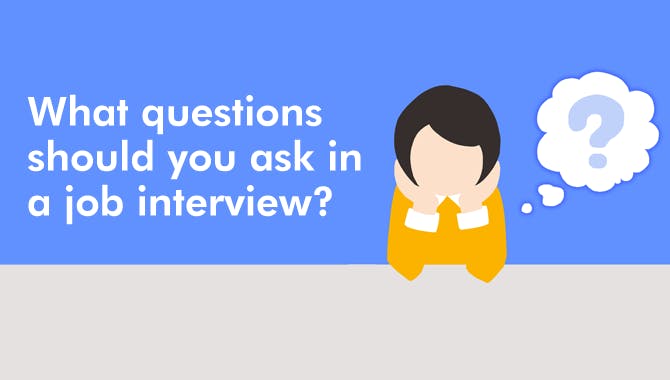
Everyone knows that part of preparing for a job interview includes coming up with a list of intelligent questions to ask your interviewer. In fact, a recent internet search on “questions to ask in an interview” returned about 140,000,000 results – so clearly, there’s no lack of advice available on this topic!
But rather than just ask the basic questions, why not approach this challenge a bit more strategically by determining not only what questions you’d like to have answered, but also what you want those questions to reveal or re-emphasize about you. That can be accomplished by how you frame the questions you ask.
Asking the right questions takes as much skill as giving the right answers.
– Robert Half
Job interview strategy: Reinforce professional strengths and savvy

Begin with a list of traits and capabilities that you want to reinforce and communicate to the interviewer. Let’s use the following as an example:
- I’ve done my homework/research
- I’ve successfully navigated difficult challenges
- I’m good at collaboration
- I want to grow my value to the organization
- I’m flexible, adaptable, and comfortable with change
- I can learn quickly as needed
- I’m comfortable with technology and learning about tech I don’t already know
- I understand, support, and look for ways to support the organization’s mission
Now, based on your list, craft some questions that would allow you to frame the conversation in a way to showcase your unique value. And most importantly, to leave the good impression we all want and need to leave in any interview.
I’ve done my homework/research
- I saw that [Employer name] has been identified as Info Magazine’s “most innovative start-up” three years in a row! This is one of the reasons I’d be so excited to join your team. What aspects of the company culture do you think contribute to that drive for innovation?
I’ve successfully navigated difficult challenges
- One of the challenges I really enjoyed and successfully navigated in my previous job was helping a four-generation team become one of the organization’s highest-performing groups. What kinds of multi-generational work issues, if any, have you dealt with here and how did you approach that?

I’m good at collaboration
- One of my professional strengths is collaboration, both in team situations and across departments. What opportunities for collaboration might this position involve?
I want to grow my value to the organization
- One of the ways I was able to contribute value for my previous employer was by always being willing to try out new ideas. Are there any aspects of this position that you’ve wanted to try new approaches or processes with but haven’t had a chance to yet?
I’m flexible, adaptable, and comfortable with change
- I’ve generally found when starting a new job that I need to learn new software or systems, which I really enjoy doing. Are you planning any system changes or upgrades in the foreseeable future, or is the technology currently in place what your new hire would be working with?
I can learn quickly as needed
- I’m clear on how this position fits into the overall organization goals and the responsibilities I’ll need to master. But looking at the longer term, are there any other contributions you’d like to see this position make? I’m always happy to teach myself additional skills in order to increase my value to the team [or department].

I’m comfortable with technology and learning about tech I don’t already know
- Familiarity and experience with [technology] is one of the requirements for this position that caught my attention, because I’ve been using the system for three years. Technology is evolving rapidly, which I find challenging and interesting. What systems do you foresee the organization changing or implementing in the near future?
I understand, support, and look for ways to support the organization’s mission
- I know that the [employer’s industry] is going through a lot of changes right now, which I’m guessing will have an impact on some of [Employer’s] own strategies and opportunities. Are there any changes you see on the horizon for this department, and if so, how could this position best support those changes?
Asking the right questions means identifying the questions that will help you play to your strengths, frame your weaknesses and better understand the opportunity.
I’ll leave you with advice from LibGig Director of Recruiting Brad Rogers:
“Don’t miss this opportunity to reinforce your value to a potential employer. Your goal when framing your interview questions should address two objectives. First, ask thoughtful questions that surface useful information about the job itself. And then make sure you frame those questions in such a way that you’re able to re-emphasize the key strengths you’d like the interviewer to remember about you.”
